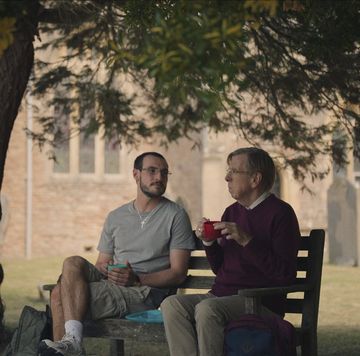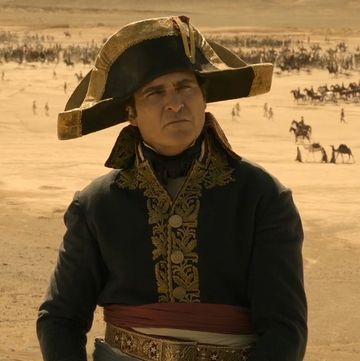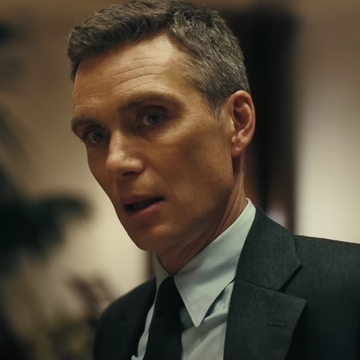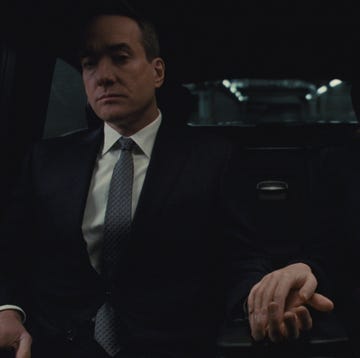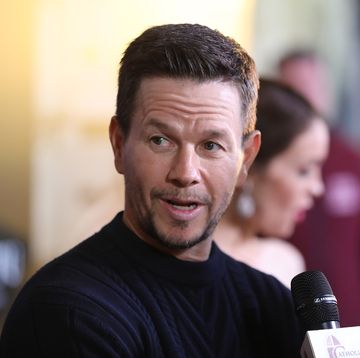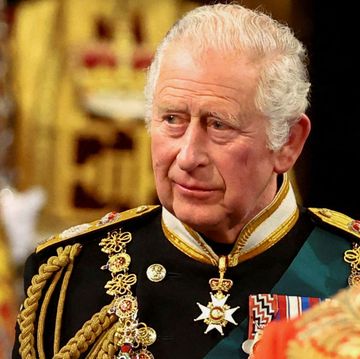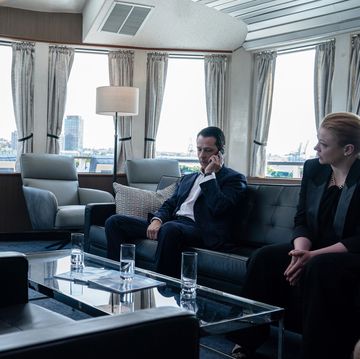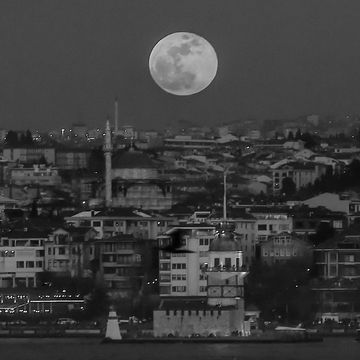I strolled into Red Dead Redemption II thinking that I could be a nice cowboy. The Wyatt Earp kind–respecting the law, protecting the good from the evil, stealing from the rich to give to the poor, you get the idea. After the wholesome escapism of recent, more lighthearted titles like Spider-Man for PS4 and Nintendo’s Breath of the Wild, I thought my days of being a reckless, cold-hearted son-of-a-bitch in open world video games were long behind me.
I was wrong.
In Rockstar’s long-anticipated prequel to their critically-beloved Western series, you can really be whatever kind of cowboy you want—but in the many, many hours I sunk into this unfathomably gigantic video game, I committed unthinkable things to survive in the American Frontier. I was a bad cowboy. And I liked it.
The game opens on a treacherous wintry excursion through the Ozarks, introducing us to a gang of rough-and-tumble varmints, each seemingly dumber than the last. Led by the notorious Dutch van Der Linde–12 years younger than we last saw him–this wild bunch is on the run after a botched job somewhere off the coast of a town called Blackwater. We don’t know exactly what happened out in Blackwater, and the game isn’t too keen on answering questions, and nor is our hero, Arthur Morgan, too interested in getting any real answers.
Arthur, our living, breathing, tragically-mortal flesh-bunker of the game, is Dutch’s right hand man, and from the outset, it’s clear that Mr. Morgan is not the kind of guy who’s known for his superior intellect. In fact, at times, he seems like he may be among the dullest of the group, a broad-shouldered brute who comes off more Luca Brasi than Tommy Hagen. While at first there’s a hollow feeling to embodying this seemingly dull, short-tempered pugilist, it soon becomes quite clear that Rockstar chose to give us a blank slate so we can portray whatever personality we want onto Arthur. And, more significantly, who better to represent the formative days of the American Frontier, when science and education took second-billing to dumbass, racist notions like phrenology and superstitious gobbledegook, than a big, old-fashioned idiot?
As this pack of unruly outlaws ventures through the gorgeously-rendered tundra, Rockstar makes it clear that surviving in the 1890s-era West is no easy feat. This game is less concerned with offering up the glitzy Tinseltown fantasy of cowboy life a la John Wayne or Jimmy Stewart, and more enthralled with the menacing desolation of the end of the 19th century, when civilised life in the US was as new as it was lonely.
At its best, Red Dead Redemption II functions as a complex meditation on the bankrupted morals that laid the foundations for our wobbly young republic, eschewing the playground delights of recent, more carefree open-world titles for a surprisingly introspective, and, at-times, self-loathing tale told ‘round the campfire.
As the the outlaw gang suffers subzero temperatures and unyielding terrain on their run from the law, the frontier suddenly starts to feel less like a jaunty hootenanny and more like a somber blues tune, recalling the grand disillusionment of revisionist westerns like the similarly sardonic McCabe and Mrs. Miller, or Tarantino’s Hateful Eight, two snow-covered westerns that challenge our expectations of the proud, yet morally-oblique Lone Ranger style of heroism.
Just as Robert Altman’s Mrs. Miller put a magnifying glass to the senseless violence that mucked up the formative years of this country, Red Dead II’s fascination with the brutal day-to-day drudgery of outlaw life does not stop after the gang leaves the Ozarks. As we enter the glorious, unprecedentedly far-reaching and layered open world beyond the hills, Rockstar forces players to look face-to-face with the bloodlust that lives inside every one of us, flinging us noggin'-first onto a merciless plateau of predators, temptations, hit-jobs, bounty hunters, lawmen, gunslingers, bar fights, and innocent bystanders of the Old West.
Unlike Breath of the Wild, a game that feels similar in its exaltation of the great outdoors, but full of very long, sometimes boring expanses of emptiness between points of interest, every inch of Red Dead’s huge world is covered in mystery and things to do. This may be a result of the reportedly overwhelming and potentially unethical amount of time workers at Rockstar devoted the game–but the experience is supremely baffling nonetheless.
In the miles and miles you can explore by horseback, train, foot, and whatever primitive moving object you can force yourself onto, nothing feels at-all procedurally generated. And since this world is so intricately designed and fully-realized, you simply cannot coast through Red Dead without getting your hands dirty.
Here’s a typical afternoon in Red Dead Redemption II: I’m going out for a pleasant hunt, hoping for some rare meat to sell to a butcher. I plant my bait, smoke a cigar to refill my energy, then realise I'm completely out of ammo. Fortunately, I happen to see a passerby in the distance. He doesn’t want to talk, but I need his gun. Since nobody is around, I wrap the poor guy up with my lasso. I don’t want to kill him; again, I just need his gun. But now somebody else has spotted me. I hogtie my first friend, take his gun, and run to the witness. Now what? If I let him live, he’s going to report me to authorities, so I shoot him in the head. That guy I hogtied, who just saw it all? Well, now I have the same problem.
Now do you see why I couldn’t be a nice cowboy?
The burden of the American Dream has been defined and redefined in zillions of modern-day video games, and to be honest, when I heard Rockstar was developing a new Red Dead, I wondered if we really needed it. Didn't we confront our corrupted values enough in GTA V? But after a few hours with the game, whether the topic is a dead-horse just feels beside the point.
Rockstar has delivered a piece of work here that is simply a gigantic moment for the open-world genre, and for the medium of video games in general. It’s more intimate, ambitious, and wide-spanning than any title in memory, landing somewhere between a playable Westworld and a days-long camping trip to the woods between old friends. And unlike most every other high-velocity, attention-demanding game out there today, Red Dead is slow. It takes its time. It lets you wander, and even daydream.
Maybe when you play it, you’ll choose a more selfless path. But as you’ll learn from this gang of criminals and renegades under Dutch van der Linde, once you enter this life outside the law, there’s no going back. Once an outlaw, always an outlaw.
Dom Nero is a Senior Creative Producer at Esquire, where he also writes about film, tv, tech, and video games. Elsewhere, Dom hosts Eye of the Duck, a podcast about essential movie scenes.





